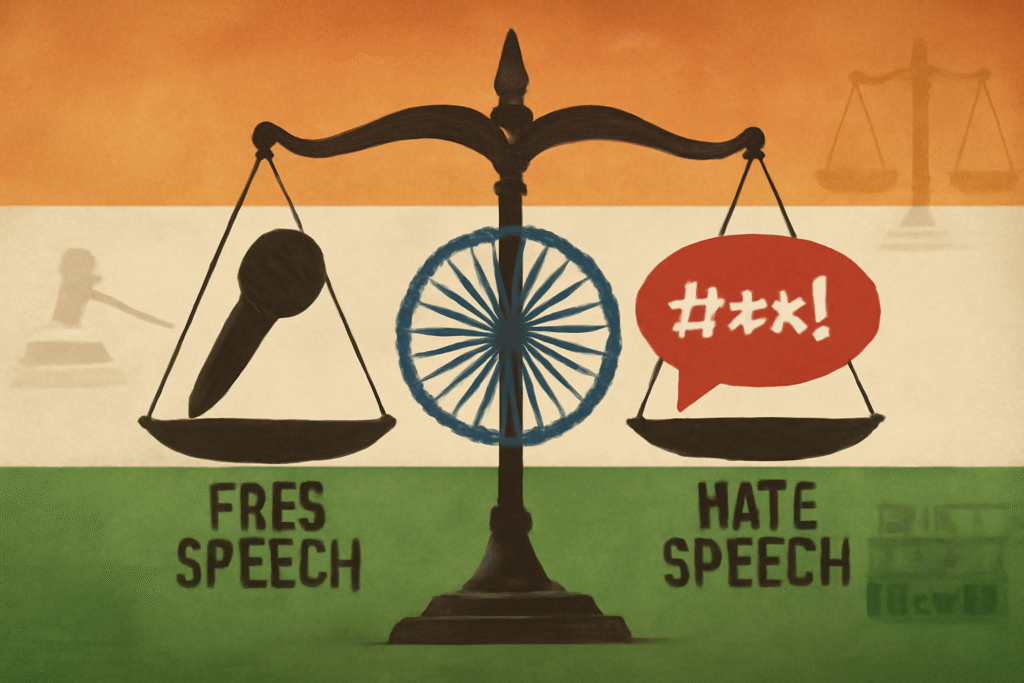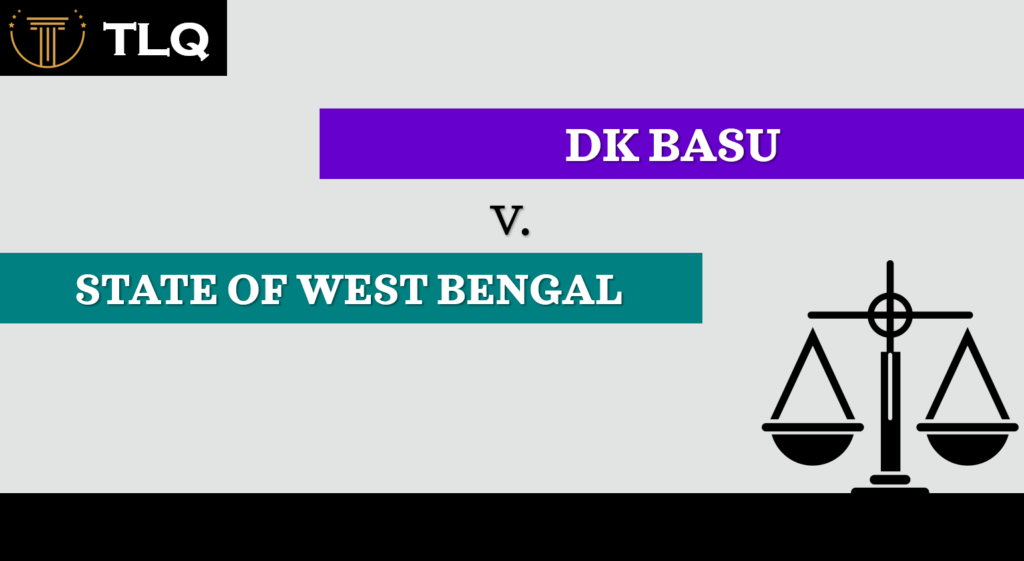Published On: 19th October, 2024
A) ABSTRACT / HEADNOTE
The case of Union of India v. Virpal Singh[1], is a landmark judgment by the Supreme Court of India that addresses the issue of reservation in promotion for Scheduled Castes (SCs) and Scheduled Tribes (STs) within the Indian Railways. The primary question was whether SCs/STs who had availed themselves of the benefit of reservation in promotion could claim seniority over general category employees who were promoted later but had joined the service earlier. The Supreme Court’s ruling clarified that while reservations in promotions are constitutionally valid, the seniority of SC/ST candidates promoted through reservation must be adjusted to reflect their actual date of promotion, thereby maintaining the integrity of the seniority principle.
Keywords: Reservation, Promotion, Seniority, Scheduled Castes, Scheduled Tribes, Indian Railways, Supreme Court of India.
B) CASE DETAILS
Judgement Cause Title / Case Name: Union of India v. Virpal Singh
Case Number: Civil Appeal No. 2175 of 1995
Judgement Date: 3rd October 1995
Court: Supreme Court of India
Quorum / Constitution of Bench: Five Judges
Author / Name of Judges: Justice J.S. Verma, Justice N.P. Singh, Justice K. Venkataswami, Justice S.C. Sen, and Justice B.N. Kirpal
Citation: AIR 1996 SC 448
Legal Provisions Involved: Articles 16(4) and 16(4A) of the Constitution of India
Service Rules of the Indian Railways
C) INTRODUCTION AND BACKGROUND OF JUDGEMENT
The Union of India v. Virpal Singh case is a significant ruling in the context of affirmative action and the principles of seniority within Indian public services. This case arose from a conflict between employees of the Indian Railways regarding the interpretation and application of reservation policies in promotions. Specifically, the issue was whether Scheduled Castes (SC) and Scheduled Tribes (ST) employees promoted through reservation quotas could claim seniority over general category employees who were promoted later but had joined the service earlier.
This case highlighted the constitutional provisions under Articles 16(4) and 16(4A) of the Indian Constitution, which provide for reservations in appointments and promotions for SCs and STs. The contention was whether these provisions also allowed reserved category employees to claim seniority over their general category counterparts, potentially disrupting the established seniority principle based on the date of entry into service.
The judgment, delivered by a five-judge bench of the Supreme Court of India, provided clarity on this contentious issue and established guidelines for balancing the constitutional mandate of affirmative action with the need to maintain administrative efficiency and morale within public services.
D) FACTS OF THE CASE
Procedural Background of the Case
The case commenced with a writ petition filed by general category employees of the Indian Railways, challenging the seniority claims of SC/ST employees promoted through reservation. The Central Administrative Tribunal (CAT) ruled in favour of the general category employees, which was subsequently challenged by the Union of India and SC/ST employees in the Supreme Court.
Factual Background of the Case
The dispute arose within the Indian Railways, where SC/ST employees were promoted to higher positions through reserved quotas. These employees claimed seniority over their general category counterparts, who were promoted later but had joined the service earlier. This led to discontent and legal battles between the two groups, ultimately resulting in the present case before the Supreme Court.
E) LEGAL ISSUES RAISED
1) Whether SC/ST employees promoted through reservation are entitled to claim seniority over general category employees who were promoted later but joined the service earlier.
2) Whether the provisions of Article 16(4A) of the Indian Constitution permit such claims of seniority by SC/ST employees.
F) PETITIONER / APPELLANT’S ARGUMENTS
The Union of India, along with the SC/ST employees, presented several arguments to support their position that the reservation in promotions should include seniority benefits:
- Constitutional Mandate: They argued that Articles 16(4) and 16(4A) of the Indian Constitution were specifically designed to uplift historically disadvantaged groups. Denying seniority benefits to SC/ST employees promoted through reservation would undermine the objective of these constitutional provisions.
- Principle of Equality: It was contended that the principle of equality necessitated that SC/ST employees be treated on par with general category employees concerning seniority. The reservation policy aimed at ensuring adequate representation of SCs and STs in higher echelons of public services and this goal would be compromised if seniority were not accorded to promoted employees.
- Historical Disadvantage: The appellants emphasized the historical disadvantages faced by SCs and STs, arguing that reservation policies, including seniority benefits, were essential to rectify the systemic inequalities and provide a level playing field for these communities.
- Legal Precedents: The appellants cited previous judgments that upheld the validity of reservations in promotions and argued that these precedents supported their claim for seniority benefits as an integral part of the reservation policy.
G) RESPONDENT’S ARGUMENTS
The general category employees, who were the respondents in this case, countered the arguments presented by the petitioners with the following points:
- Seniority Principle: The respondents argued that allowing SC/ST employees to claim seniority over general category employees who were promoted later would violate the fundamental principle of seniority based on the date of entry into service. They contended that seniority should be determined by the actual date of promotion, not by reservation quotas.
- Administrative Efficiency: The respondents emphasized that the seniority principle is crucial for maintaining administrative efficiency and morale within public services. Disrupting this principle by allowing SC/ST employees to supersede their general category counterparts would create resentment and adversely affect the working environment.
- Equality and Merit: They contended that equality and merit should be the guiding principles for promotions and seniority. While reservations in promotions are constitutionally valid, they should not undermine the merit-based seniority system, which ensures fairness and competence in public services.
- Constitutional Interpretation: The respondents argued that the constitutional provisions of Articles 16(4) and 16(4A) should not be interpreted to grant seniority benefits to reserved category employees. They asserted that these provisions aimed at providing opportunities for advancement, not altering the established seniority norms.
- Legal Precedents: The respondents cited legal precedents where the courts had upheld the seniority principle based on the date of promotion and argued that these precedents supported their position against granting seniority benefits to SC/ST employees promoted through reservation.
H) RELATED LEGAL PROVISIONS
- Article 16(4)[2] of the Constitution of India: This provision empowers the State to make any provision for the reservation of appointments or posts in favor of any backward class of citizens which, in the opinion of the State, is not adequately represented in the services under the State. This clause has been the cornerstone for the reservation policy in India, aimed at promoting social equality by ensuring representation of historically disadvantaged communities in public employment.
- Article 16(4A)[3] of the Constitution of India: Added by the 77th Amendment in 1995, this provision specifically allows the State to make any provision for the reservation in matters of promotion to any class or classes of posts in the services under the State in favor of SCs and STs, which, in the opinion of the State, are not adequately represented in the services under the State.
- Service Rules of the Indian Railways: These rules govern the terms of employment, promotion, and seniority of railway employees. They include provisions on how seniority is to be determined and how reservations in promotions are to be implemented.
I) JUDGEMENT
Ratio Decidendi
The Supreme Court held that while reservation in promotion is constitutionally valid under Articles 16(4) and 16(4A), the seniority of SC/ST employees promoted through reservation should be adjusted to reflect their actual date of promotion. This means that SC/ST employees cannot claim seniority over general category employees who were promoted later but had joined the service earlier .
Guidelines
The Court laid down specific guidelines for the implementation of this principle:
- SC/ST employees promoted through reservation would not retain their seniority over general category employees promoted later but who joined the service earlier.
- Seniority should be determined based on the actual date of promotion rather than the date of entry into service .
Overruling Judgments
The judgment did not explicitly overrule any previous judgments but provided clarity on the interpretation of Articles 16(4) and 16(4A) concerning seniority in promotions. However, it built upon and clarified the principles laid out in earlier cases such as Indra Sawhney v. Union of India[4] and R.K. Sabharwal v. State of Punjab[5].
Obiter Dicta
The Court observed that the objective of reservation is to ensure adequate representation of SCs and STs in public services. This objective should be pursued without compromising the integrity of the seniority principle, which is essential for maintaining administrative efficiency and morale within public services.
J) CONCLUSION & COMMENTS
The Union of India v. Virpal Singh[6] judgment is a landmark ruling that strikes a balance between the constitutional mandate of reservation and the principle of seniority. The Supreme Court’s decision ensures that while SC/ST employees are given opportunities for advancement through reservation, the seniority of general category employees is not unjustly compromised. This judgment is significant as it maintains the delicate equilibrium between affirmative action and administrative efficiency. It underscores the importance of interpreting constitutional provisions in a manner that promotes social justice without undermining established service norms.
The decision has far-reaching implications for the implementation of reservation policies in public employment. It provides a clear framework for how seniority should be managed in the context of reservation in promotions, ensuring that the rights of both reserved category employees and general category employees are protected. This judgment reaffirms the need for a nuanced approach to affirmative action, one that promotes equality without creating new forms of inequality or administrative inefficiency.
K) REFERENCES
Important Cases Referred
- Indra Sawhney v. Union of India[7]: This landmark case, also known as the Mandal Commission case, laid down the principles for reservation in public employment and education. It upheld the validity of reservations but also imposed limits to prevent excessive reservation.
- K. Sabharwal v. State of Punjab[8]: This case clarified that reservations in promotions should not exceed the number of vacancies available and emphasized the importance of maintaining the efficiency of public administration.
Important Statutes Referred
- The Constitution of India.
- Service Rules of the Indian Railways.
[1] AIR 1996 SC 448.
[2] Article 16(4) of the Constitution of India provides for reservation in appointments or posts in favour of any backward class of citizens.
[3] Article 16(4A) of the Constitution of India empowers the State to make provisions for reservation in matters of promotion to any class or classes of posts in the services under the State in favour of the SCs/STs.
[4] AIR 1993 SC 477.
[5] AIR 1995 SC 1371.
[6] Ibid
[7] Ibid
[8] Ibid




